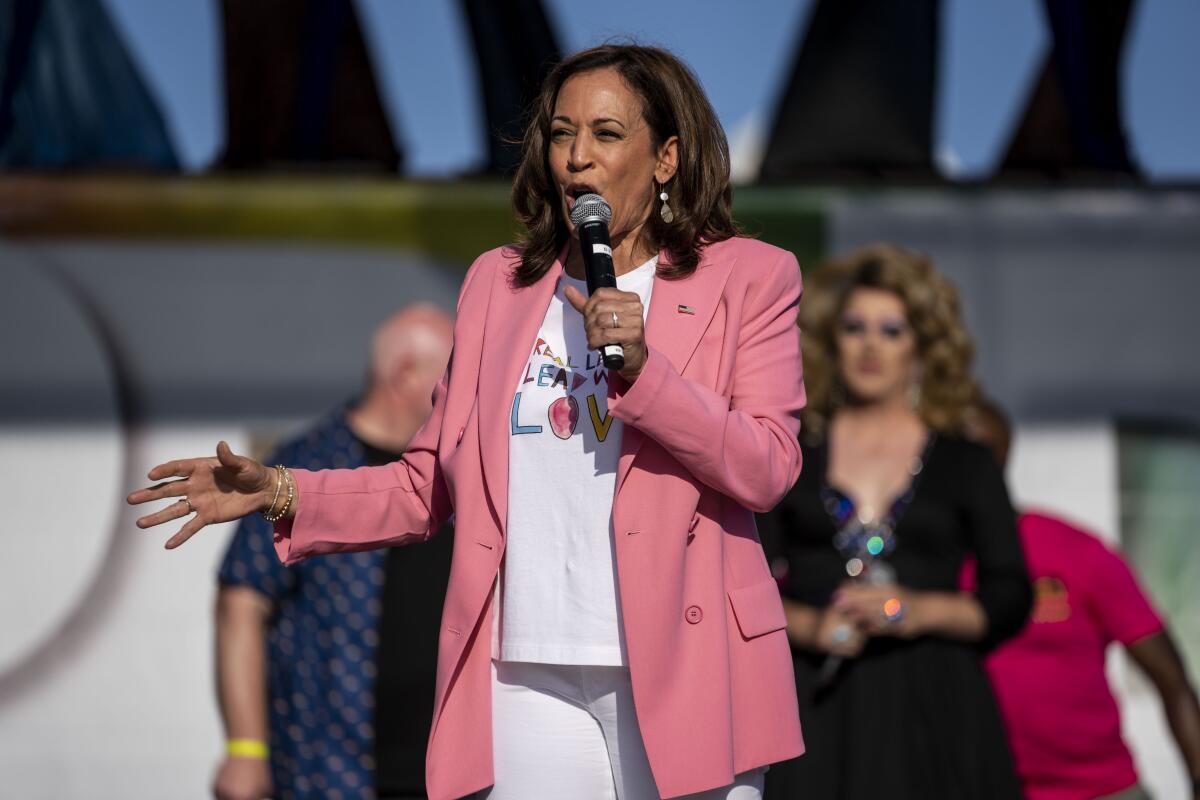Harris unveils expansion of postpartum health program for low-income moms

WASHINGTON — Vice President Kamala Harris on Thursday announced an expansion of a federal program that provides healthcare coverage for lower-income women for up to a year after they give birth.
The federal government, using money from the $1.9-trillion stimulus law signed last year, announced access to the program for three additional states — Maine, Minnesota, New Mexico — along with Washington, D.C.
The number of jurisdictions providing the benefit stands at 15, including California. The program gives health benefits — including pelvic exams, vaccinations and screenings — through Medicaid and the Children’s Health Insurance Program to qualifying families. Previously, mothers were only covered for two months after giving birth. Administration officials would not say what the expansion will cost.
“This is only the beginning,” Harris said in a conference call with reporters. “Our administration will continue to fight until every state has expanded Medicaid coverage.”
The administration estimates that about 250,000 parents, more than 100,000 of whom reside in California and Florida, are eligible to participate in the program. Nine additional states have applied to join the effort. Medicaid covers 42% of all U.S. births. An administration study says that about one in three pregnancy-related deaths of women occur between a week and a year after giving birth.
Harris has made maternal health one of her prime focuses since taking office. She spoke along with other Democratic state and federal officials as they try to promote the stimulus plan, one of the administration’s most significant initiatives.
In her remarks, Harris called maternal healthcare a crisis, highlighting the disparate impact on Black women and other minorities. She linked the issue to abortion access, which is likely to end in many states if the Supreme Court overturns Roe vs. Wade in the coming weeks.
“It is about understanding how all women in our nation, regardless of their income, regardless of where they live, should have full access to reproductive healthcare,” Harris said.
More to Read
Get the L.A. Times Politics newsletter
Deeply reported insights into legislation, politics and policy from Sacramento, Washington and beyond. In your inbox three times per week.
You may occasionally receive promotional content from the Los Angeles Times.











